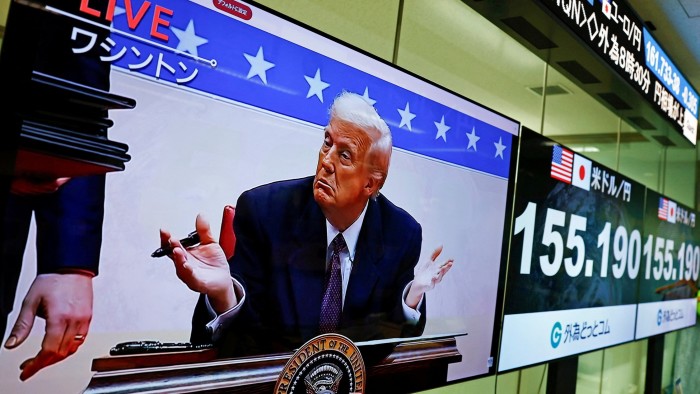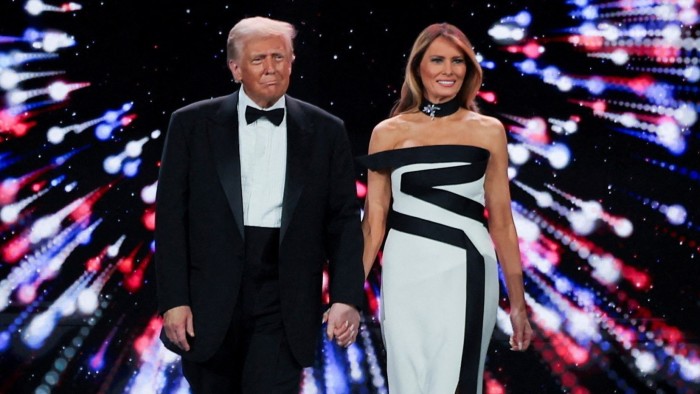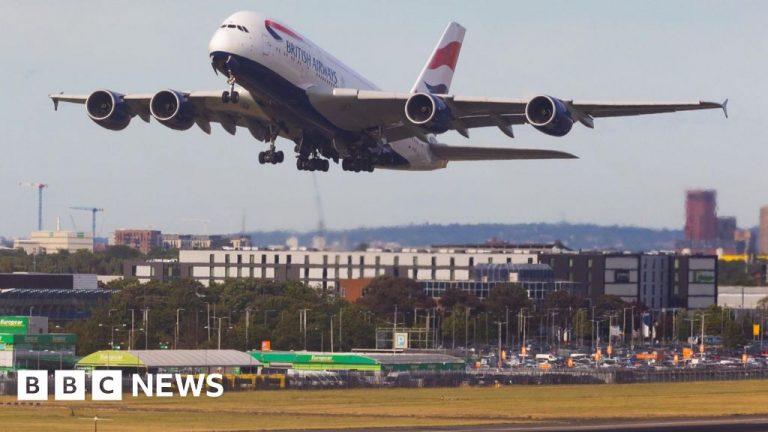Unlock the White House Watch newsletter for free
Your guide to what the 2024 US election means for Washington and the world
Donald Trump sparked tumult in financial markets hours after his inauguration as he threatened to hit Mexico and Canada with big tariffs.
Speaking in the Oval Office late on Monday, Trump said he could enact tariffs of 25 per cent against both countries as soon as February 1, repeating earlier threats to strike two of the US’s closest trading partners with levies to retaliate for weak border security and fentanyl trafficking.
Trump’s renewed warnings sent the Mexican peso sliding 1.1 per cent against the US dollar, and the Canadian dollar down 0.9 per cent as trading began in Asia on Tuesday.
Both currencies had gained sharply on Monday after administration officials said Trump would refrain from immediately hitting key partners with levies and instead study the trade situation.
The price swings highlight how investors are preparing for upheaval this week, especially in currency markets, as Trump rolls out plans to unwind many of Joe Biden’s hallmark policies and enact a protectionist agenda that weaponises America’s economic heft.
“This sort of volatility is the new normal,” said Eric Winograd, an economist at AllianceBernstein. “Policy under the Trump administration is likely to be less predictable and less process-oriented than what we have become accustomed to under the Biden administration.”
A broad sell-off in the greenback also eased after Trump’s comments on tariffs, with the dollar index, a measure of the currency against six peers, trimming a fall of as much as 1.3 per cent to just 0.9 per cent.
Futures tracking Wall Street’s S&P 500 and Nasdaq 100 indices pointed to a flat opening on Tuesday morning after shedding earlier gains.
In a sign of how Trump intends to use trade curbs as a key diplomatic tool, the new president on Monday night hit out at the EU, threatening the bloc with tariffs if it did not buy more US oil.
“They don’t take our cars, they don’t take our farm product, they don’t take almost anything,” said Trump. “And yet, we take their cars and we take their farm product, we take a lot from them. So we’ll figure that out with either tariffs or they have to buy our oil.”
The euro, which has the biggest weight in the dollar index, fell about 0.5 per cent against the greenback to $1.04 early in the Asia-Pacific session on Tuesday, partially reversing a 1 per cent gain on Monday.
Sterling fell 0.3 per cent to $1.23 after a 0.8 per cent rise the previous day.
In Asian markets, traders were relieved after Trump refrained from immediately enacting trade curbs against China, even as he warned he could do so if Beijing declined to hand the US partial control over the social media app TikTok.
The CSI 300 index of mainland-listed companies was flat midway through Tuesday trading and Hong Kong’s Hang Seng was up 0.9 per cent.
The offshore renminbi also strengthened to a six-week high of 7.25 to the dollar before weakening to 7.28.
“The short version is we may have avoided the worst-case scenario from a risk-asset perspective. There were no day one tariffs on China,” said Jason Lui, head of Apac equity and derivative strategy at BNP Paribas.
“The Chinese equity market [already] rallied into the inauguration after the Trump-Xi phone call over the weekend, that’s why there’s a more measured reaction.”
Reporting by Adam Samson and Harriet Clarfelt in New York, Aime Williams in Washington, Arjun Neil Alim in Hong Kong, Leo Lewis in Tokyo and Nic Fildes in Sydney

























+ There are no comments
Add yours